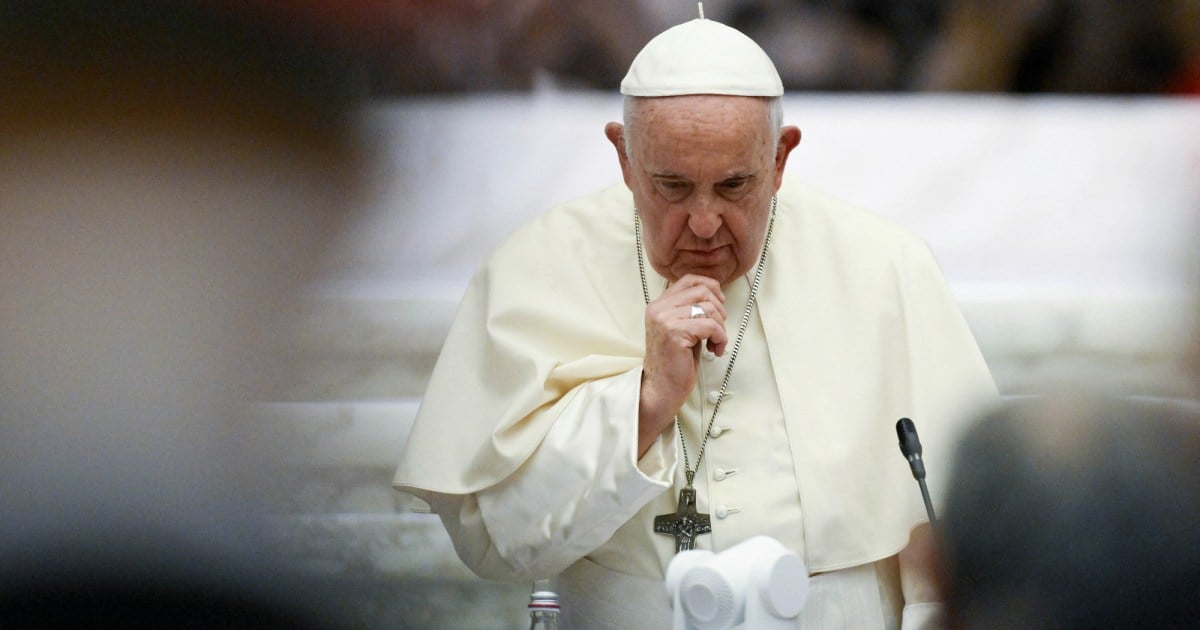This week, hundreds of delegates from around the world began a monthlong meeting as part of Pope Francis’ “Synod on Synodality”—a gathering to discuss the future of the Catholic Church. It could radically change the religion. The group is considering groundbreaking alterations to orthodoxy on same-sex unions and whether or not women can be ordained as priests. The process has changed, too. For the first time, delegates include women.
A synod is a conference for church leaders and lay people to engage in conversation about how to bolster the good of the church. Since the 1960s, delegates from the global church have come together to discuss evolving issues. The current synod is part one of a multi-year process that will culminate in 2024 with Francis’ decisions and includes particularly controversial topics, like celibacy and divorce.
The lead up has been punctuated by conservative concerns about just how liberal this meeting may get. The synod kicks off days after a letter became public in which the pope considered blessing the existence of queer couples and the allowance of female priests.
Pope Francis wrote that while marriage is an “exclusive, stable and indissoluble union between a man and a woman, naturally open to conceiving children,” pastoral charity is also needed, and may be discretionary. Pastoral prudence, he wrote, “must adequately discern if there are forms of blessing, solicited by one or various persons, that don’t transmit a mistaken concept of marriage.” On female priesthood, the pope asserted that, whereas nobody can publicly contradict the church’s current rules prohibiting women’s ordination, they should study it.
For some, this rhetoric may seem like the bare minimum. But for others, like Americans on the right, it’s scary as hell.
Conservative Catholics across the U.S. have been some of the most vocal globally in pushing against reforms, and fear that the church is changing in a way that doesn’t match scripture or their ideology. One New York City priest, Reverend Gerald Murray, worried publicly that the pope “will authorize things that are not contained in Catholic doctrine or that will contradict it,” like women deacons or blessing gay unions. “We’re not Protestants,” he said.
Cardinal Raymond Leo Burke, Archbishop Emeritus of St. Louis, a vocal opponent to Pope Francis, was in the group that sent the pope a letter inquiring how he would be responding to these issues at the summit. “It’s unfortunately very clear,” Burke said on Tuesday, “that the invocation of the Holy Spirit on the part of some has as its aim to push forward an agenda that is more political and human than ecclesiastical and divine.” (Burke was not invited to the meeting at the Vatican.)
Pope Francis’ track record on queer and women’s rights is complicated. He formally allowed women to read from the Bible during Mass, but also came out against women becoming ordained. Speaking about queer people in 2013, the pope famously asked, “If they accept the Lord and have goodwill, who am I to judge them?” He has argued that homosexuality should not be treated as a crime in different countries but clarifies that he still thinks it’s a sin. Francis has framed many of these decisions as instances where localities should turn toward scripture and an evolving discernment as it befits their needs as part of his hope of growing the Catholic Church.
Because of this potential divide between local and global doctrine and application, it is possible that American Catholics may not even see these changes, should they be formally supported by the pope but not adopted by local priests.
As Mother Jones previously reported, American catholicism has splintered as some of the devout entrench themselves in wider conservative politics. Right-wing provocateurs like Milo Yiannopoulos and Steve Bannon notably have moved in Catholic circles saying Pope Francis should be curtailed. Yiannopoulos, who touts a traditionalist form of Catholicism, has been telling anyone who will listen to him, to “make the Vatican straight again” and “make America homophobic again.”
The pope himself seems unfazed by the ire of American Catholics. “They got mad,” he told reporters in late August after a squabble. “But move on, move on.”



That was exactly my thought. Reverend Gerald Murray doesn’t seem to know some of the basics of Catholicism.
The same verses that the Pope drives his authority from say that he can so change stuff. Matthew 16:17-19.